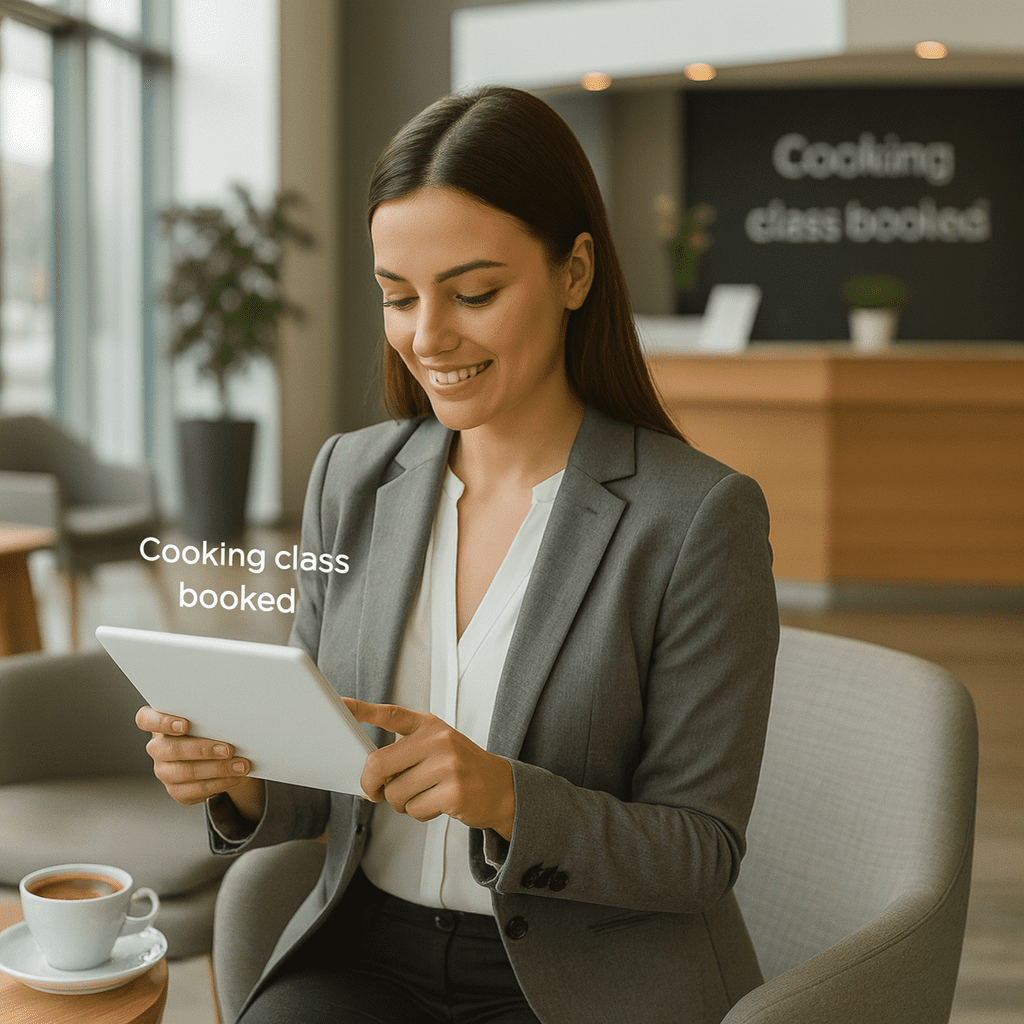
The digital dawn of hospitality: the technologies that will revolutionise hotel upselling in 2025
In a rapidly evolving hospitality industry, upselling is undergoing swift transformation, shifting from a simple sales technique to a sophisticated, data- and technology-driven strategy.
The year 2025 is shaping up to be a pivotal moment in this revolution, where technological innovation not only boosts revenue but significantly enhances the guest experience—making it more personalized, intuitive, and memorable.
While the primary goal of upselling has always been to increase revenue, the modern vision—amplified by emerging technologies—redefines it as a key tool for improving guest satisfaction.
Understanding which technologies are at the forefront is essential for hoteliers looking to stay competitive and unlock the full potential of their property.
AI and machine learning: the era of predictive hyper-personalization
One of the driving forces behind the upselling revolution in 2025 is the advanced application of Artificial Intelligence (AI) and machine learning.
These technologies enable an unprecedented level of personalization.
By analyzing large data sets—including guest behavior, booking history, spending patterns, and even stated preferences—AI algorithms can predict which offers are most likely to be accepted.
This leads to hyper-personalized upselling, where offers are not generic, but finely tuned to individual desires.
For example, a business traveler might receive an offer for a premium room with enhanced workspace features or access to an exclusive lounge.
A couple seeking a romantic getaway might be presented with an upgrade to a suite with a breathtaking view, a spa package for two, or a special dinner experience.
This ability to anticipate needs and desires, based on data and predictive analytics, transforms upselling from a simple transaction into a thoughtful and relevant service.
Automation and integration: operational efficiency and consistency
Automation is no longer a luxury—it’s a necessity in modern hotel upselling, especially in 2025.
Manual programs are unsustainable and non-scalable.
Upselling software automates the entire process: from offer selection to dynamic pricing based on demand, and consistent real-time presentation of proposals.
The key lies in seamless integration between upselling software and other core management systems such as the Property Management System (PMS) and Customer Relationship Management (CRM).
This real-time, bidirectional integration eliminates the need for manual data entry and ensures that presented offers are always based on actual availability (of rooms or services) and guest history.
An integrated PMS provides essential first-party data on bookings and past guest behavior.
A CRM further enriches this data with insights into customer relationships and enables automated, targeted communications.
The upselling software leverages this information to deliver the right offer to the right guest at the right time.
This not only increases upselling effectiveness but also frees up staff from repetitive tasks, allowing them to focus on human interaction and quality service.
Automation also simplifies transparent incentive management for staff, linking rewards to sales in a measurable and motivating way.
Multi-channel and contextual approach: reaching guests anytime, anywhere
In 2025, effective upselling spans the entire guest journey—from booking to post-stay.
Multi-channel technology allows offers to be presented through a variety of digital and physical touchpoints:
- the website’s booking engine;
- pre-arrival emails;
- the hotel’s app;
- text messages;
- mobile check-in/out;
- in-room terminals (such as tablets or smart TVs);
… and even at the front desk.
A critical trend for 2025 is hyper-contextual upselling.
This goes beyond simple profile-based personalization, using real-time data and behavioral triggers to offer upgrades or services at the precise moment they are most likely to be desired.
For instance, an early check-in offer for a guest with a scheduled morning arrival, a spa treatment on a rainy day, or extra blankets after the guest lowers the room thermostat.
These timely offers, delivered through the most suitable channel, don’t feel like “sales,” but rather like proactive, attentive service that enhances the guest experience.
Effectiveness varies by property type: resorts and non-urban hotels show higher click-through rates (CTR) for offers sent about 20–21 days before arrival, while urban hotels perform better with offers sent 7 days prior.
Data analytics: evidence-based decision making
A fundamental aspect enabled by technology is the ability to collect, analyze, and act on data related to upselling performance.
Technology platforms provide real-time dashboards showing which offers are successful, through which channels, and with which guest segments.
This data-driven insight allows hoteliers to continuously optimize their strategies by testing different offers, pricing, and timing to maximize results.
It also enables performance evaluation for staff involved in direct upselling.
Increased revenue and enhanced guest experience
By 2025, technologies such as AI, integrated automation, multi-channel platforms, and data analytics will transform hotel upselling.
It will no longer be just about encouraging higher spending—but about using AI to deeply understand guests, automating the presentation of highly personalized and contextual offers through integrated digital channels, and leveraging data to continually refine the approach.
This tech-driven model generates highly profitable revenue with low acquisition costs.
Studies indicate that upselling strategies can increase overall revenue by 10% to 30%, with some hotels reporting average gains from automated upselling between €35 and €200 per guest per month.
But perhaps the most revolutionary aspect is the impact on the guest experience: personalization and relevant offers increase satisfaction and build loyalty. Companies successfully implementing upselling report up to a 75% increase in customer retention.
In 2025, hoteliers must embrace these technologies to unlock their revenue potential and, more importantly, deliver stays that are not only comfortable but deeply personalized and memorable.
Technology is the enabler, but the goal remains to create value for the guest—building lasting relationships at the heart of the digital hospitality era.


